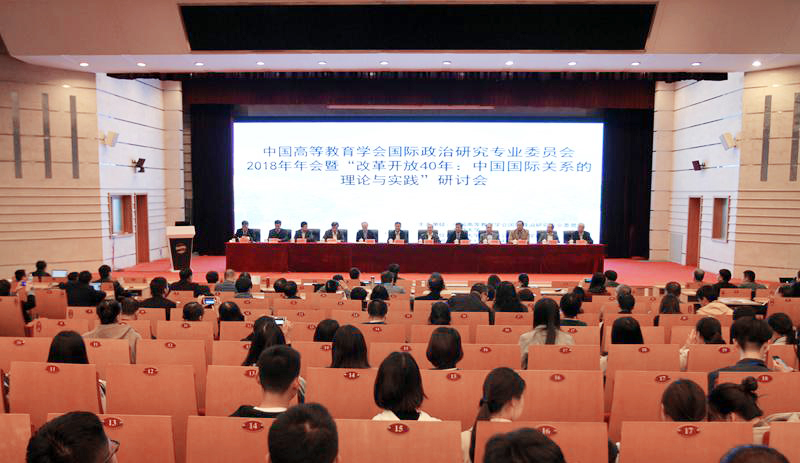Scholars explore transformation of international system

The seminar took place at Qingdao University in early November. Photo: QINGDAO UNIVERSITY
QINGDAO—Over 170 scholars from 72 Chinese higher education institutions offered their insights into the international system and China’s involvement in global affairs at a seminar at Qingdao University in early November.
Given how China’s relation with the world is undergoing a profound transformation, Liang Shoude, a professor of international relations from Peking University, said that Chinese scholars must reflect on history and reality, observe the international community from their own perspective, keep pace with the times, put forward new ideas, explain emerging problems, draw new conclusions, explore the laws of development of human society and come up with a theory of international relations with Chinese characteristics.
Cai Tuo, director of the Globalization and Global Issues Institute at China University of Political Science and Law, said that global studies is of great practical significance in the era of globalization. The new comprehensive discipline is intended to answer questions about global governance and explain the connectivity of the world and the evolution of humanity.
Cai said that the development of global studies will help understand the new phenomena and problems presented by the contemporary international society from the perspective of mankind as a whole. In theoretical research and social practice, Chinese scholars must learn to see problems with a global perspective and gain a global awareness.
The Belt and Road (B&R) initiative embodies the Chinese wisdom of global governance and is an important public good China provides to the international community.
Over the past five years, the B&R has developed from idea to action and from vision to reality, said Wang Zhimin, director of the Institute of Globalization and Chinese Modernization Studies at the University of International Business and Economics. International cooperation on production capacity has advanced the economic and social development and modernization of countries along the route.
In Wang’s opinion, the construction of the B&R involves economic cooperation, people-to-people and cultural exchanges and many other aspects. As a systematic project, it is necessary to explore a set of mutually beneficial cooperation models for all countries.
Wang suggested that efforts should be made to develop major-country diplomacy with Chinese characteristics. In addition, people-to-people and cultural exchanges among countries along the route should be further enhanced. There is diversity among the civilizations of the world. It is necessary to find the common features among different cultures and build a cultural brand out of the grand framework. Wang also said that establishing a liaison mechanism among countries along the route is key to stepping up connectivity.
Shu Xianlin, dean of the School of Marxism at Wuhan Institute of Technology, said that energy security is a core issue in the initiative. Energy cooperation among countries along the route will help expand the scale of energy development and utilization, ensure energy supply stability and security, and even improve regional energy cooperation mechanisms.
(edited by REN GUANHONG)

 PRINT
PRINT CLOSE
CLOSE